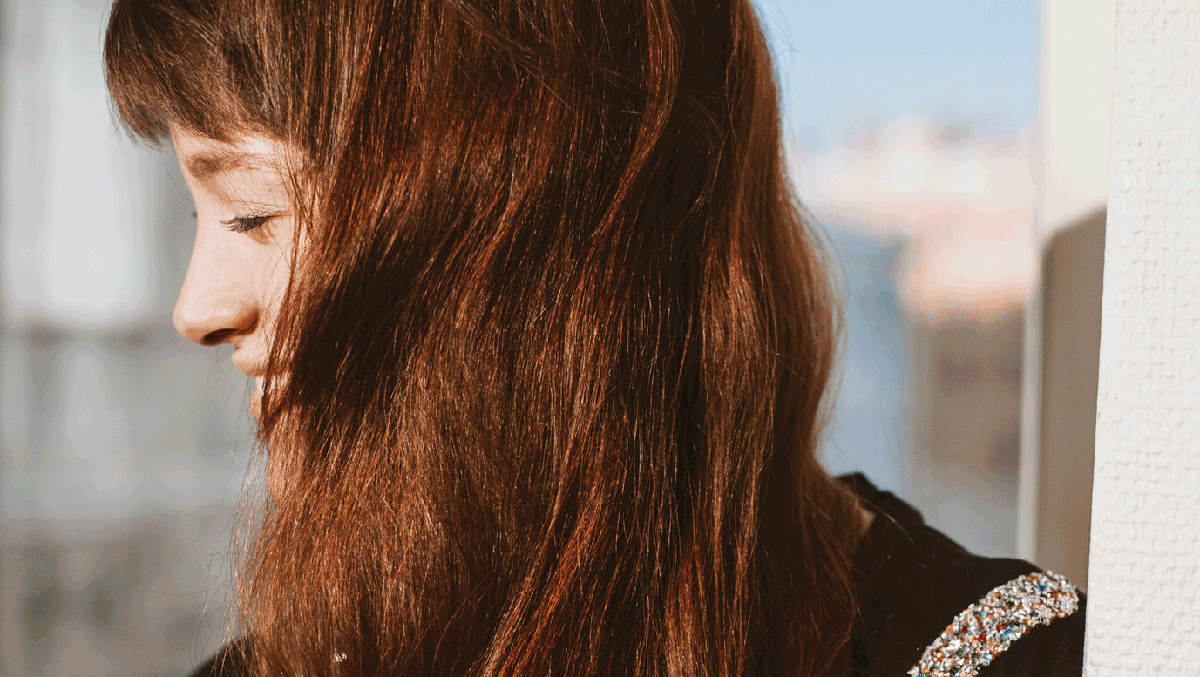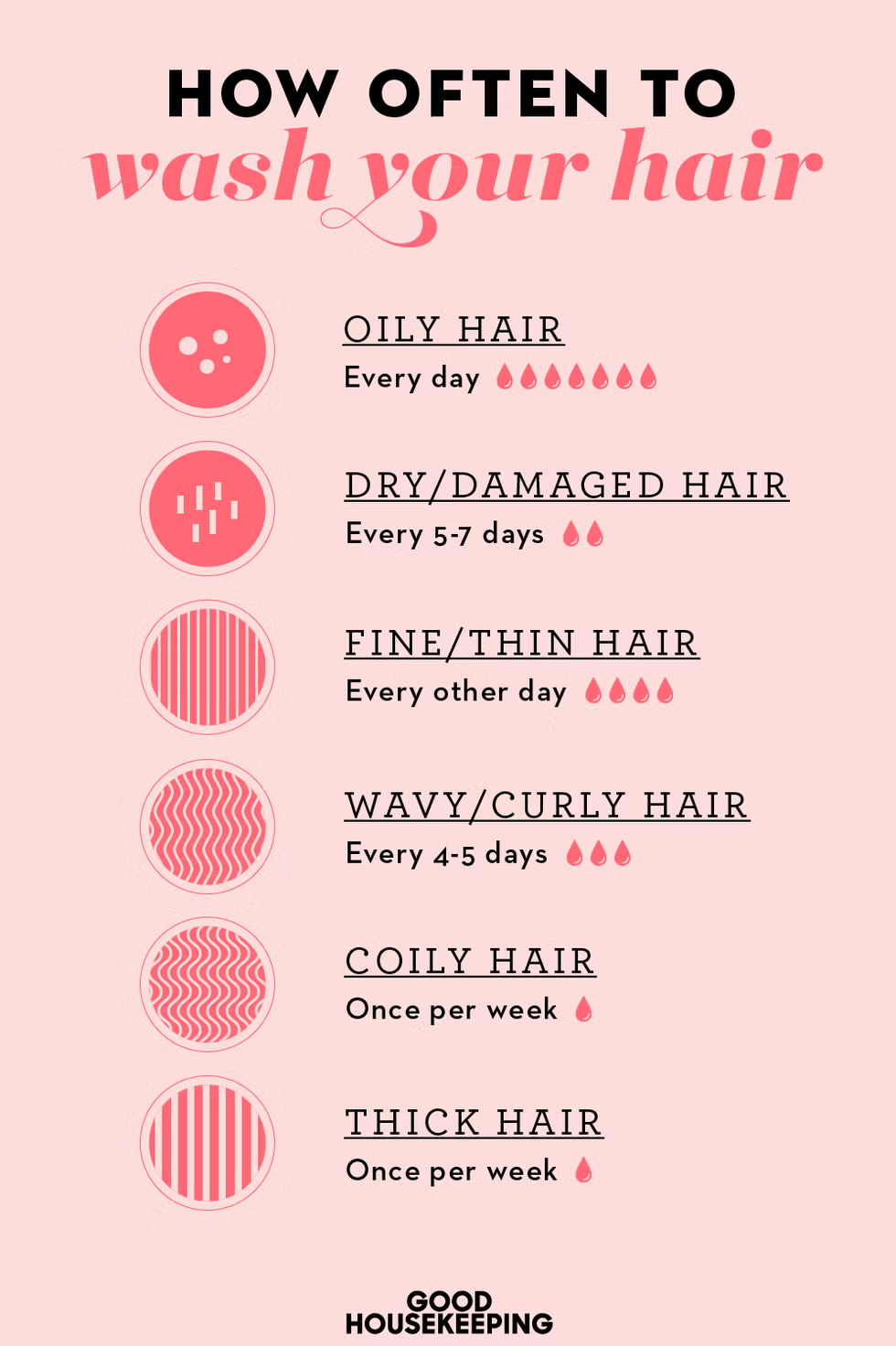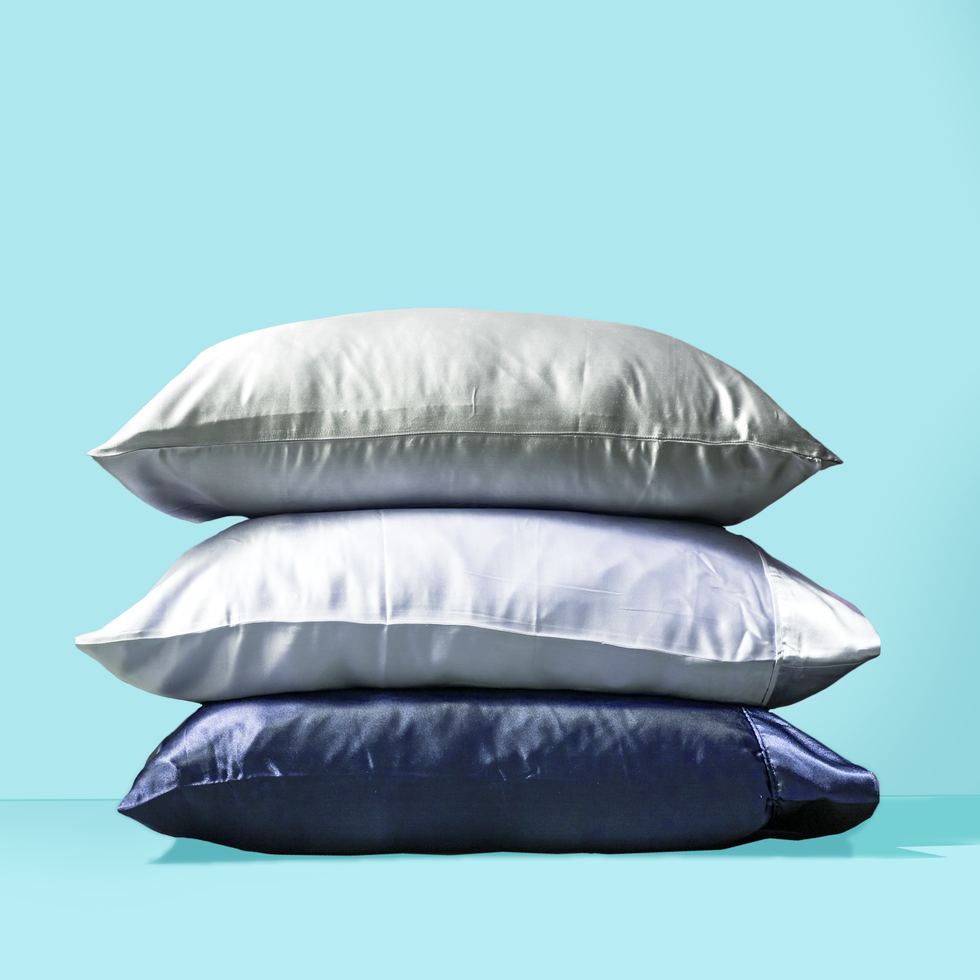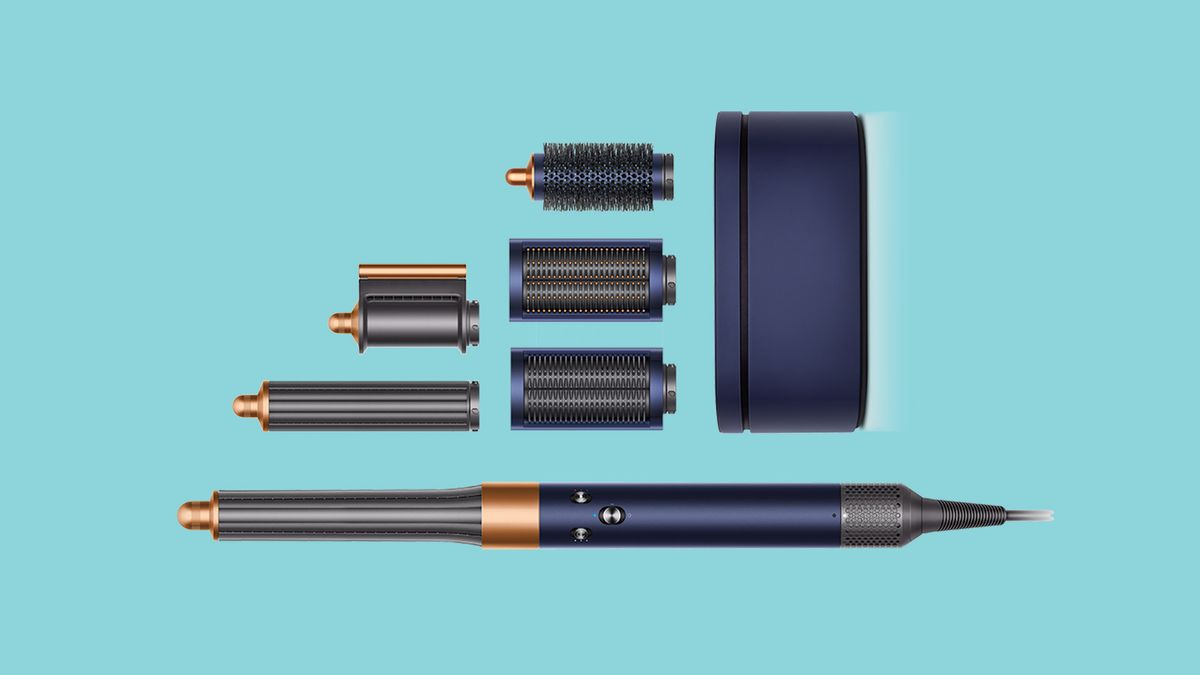
“How often should I wash my hair?” is hands down one of the most common questions hairstylists get asked on a daily basis. But it doesn’t necessarily have a straightforward answer. Just like you’d use a different shampoo for different hair (and scalp) types, you also follow a unique set of rules when it comes to cleansing.
“Washing your hair is not a one-size-fits-all process,” says Erinn Courtney, a hairstylist and natural hair expert in Los Angeles. “Our hair is not made equally and needs special care. Finding what works best for you — in terms of the right shampoo and frequency of washing— can take trial and error and doing some research.”
What determines how often you should wash your hair?
- Scalp oil. “Just like the face, some people are naturally oilier than others and can get buildup after a few days of not washing,” says Dhaval G. Bhanusali, M.D., FAAD, board-certified dermatologist in New York.
- Activity level. If you are someone who sweats more when you are active, it may increase how often you need to shampoo.
- Hair type and texture. “Certain ethnicities require less frequent washing,” Dr. Bhanusali says. A general rule of thumb: thicker hair equals less washing.
Is it unhealthy to wash your hair every day?
That really depends on your specific hair type and the shampoo you are using. “Washing your hair daily can cause dryness and breakage, but generally will not cause excessive hair loss,” says Angela Styles, a hairstylist in West Hollywood, CA. While some hair types should avoid a daily wash for those reasons, those with super oily hair “can benefit from washing every day because of the amount of oil it produces,” Courtney explains.
According to Chiara Butler, Beauty, Health & Sustainability Lab Reviews Analyst at the Good Housekeeping Institute, there are studies that show shampooing daily can actually be beneficial to the hair and scalp. “Two studies conducted on East Asian populations showed that markers of scalp health improved with a daily washing regimen,” Butler says. While this may not be true for all hair types, as mentioned by Courtney above, Butler also feels that washing daily can be the right choice for people with oilier scalps, as the alternative is often “a buildup of sebum and resulting irritation caused by not washing.”
Is it okay to wash your hair once a week?
Dr. Bhanusali recommends regular washing to maintain healthy hair and scalp health. The specific number of times varies based on hair type and texture — keep reading for more details. He also advises not to overdo dry shampoo (stick to one or two times per week), as “using it too often has been been associated with hair loss.”
Is it better to not wash your hair?
“Washing your hair is important for hair growth,” Courtney says. “It relieves your hair of product buildup and dermatitis that can negatively affect your scalp.” Shannon King, partnering artist with KMS Hair, adds that “not cleansing your hair can lead to issues with dryness, tangles and ultimately, hair loss.” Their key takeaway: As long as your hair and scalp are healthy, your hair will grow.
Butler agrees, explaining that “while shampooing can cause a small amount of mechanical damage and increase color fading, not washing the hair frequently enough can lead to the buildup of oxidized oils on the scalp, which causes scalp irritation.” One study done in Japan “found that when subjects decreased their normal wash frequency, the levels of yeast on their scalps increased, and they experienced itching and flaking.”
How many times are you supposed to wash your hair a week?
Finding the right balance can be tricky. Generally, if your hair isn’t greasy or dry, you should cleanse it every two to three days, King recommends. But if you wash hair too often for your hair type, “it could be very drying to the hair, depending on the ingredients in the shampoo,” King says. Whereas if you wait too long in between shampoos, “you could end up with a scalp that is very clogged, meaning hair won’t be able to grow out of the follicle the way and at the rate that it’s supposed to.”
Don’t stress over sudsing up — we’ve got you covered. See below for our professional stylist-approved guide to how often you should be shampooing your strands, based on your hair type.
- Oily hair: “Typically you would want to wash your hair every day to prevent build-up, unless you have very long hair or it’s very coarse or curly,” King says.
- Dry or damaged hair: While noting that it depends on the level of damage and dryness, King typically recommends shampooing every five to seven days, as “you may need to allow some [of the hair and scalp’s] natural oils to get in the mix until that time.” Courtney adds that “if hair is dry and damaged, it could be that you’re shampooing too often.” Make sure not to overuse a clarifying shampoo, as it can strip the hair of the nutrients it needs to be healthy and may allow it to become dry and damaged.
- Wavy or curly hair: Shampoo every four to five days, King suggests. “It will depend on the density of the hair, but this is a good estimate for this hair type.” If that seems like too long of a stretch, shorten it by a day or two and see how your hair and scalp react.
- Coily hair: Both Courtney and King suggest washing once per week for optimal hair growth. “Don’t forget to follow with conditioner,” King adds. “It’s equally as important to condition as much as it is to cleanse.”
- Fine or thin hair: “Fine hair will need to be shampooed as often as every other day to provide it with the moisture it needs to flourish and grow,” Courtney says. Cleansing also helps remove buildup and oils that can weigh fine or thin hair down.
- Thick hair: “Thicker textures tend to hold onto moisture, so washing once per week is sufficient,” Courtney advises.
- Hair growth: Stick with the recommendation based on your hair type, listed above. “I haven’t seen any studies that correlate with hair growth and number of times you wash,” says Dr. Bhanusali.
- If you have dandruff: Dr. Bhanusali recommends three to four times per week for about one month to see if the dandruff lessens. After that, shampoo as needed. “Look for a shampoo specifically made for dandruff, like Nizoral, Selsun Blue or Head & Shoulders, which has pyrithione zinc,” he suggests. “If you are still dealing with dandruff after a month of changing your washing routine and shampoo, it may be worth seeing a dermatologist for prescription options.”
How does the season affect your shampoo schedule?
Seasons change, and so does your hair regimen. Colder weather typically causes scalps to become drier and sometimes produce more dandruff. “Shampooing more often, such as daily or every other day in the winter, can be helpful for those who experience more dryness and dandruff,” Courtney says. During the summer, people tend to shampoo less often, especially those with curlier or coiled textures. “This allows time for people with drier scalps to produce natural moisture and let it distribute through the hair strands before wash day,” she explains.
This content is imported from poll. You may be able to find the same content in another format, or you may be able to find more information, at their web site.
Contributing Beauty Editor
Dori Price is a New York City-based freelance writer and editor and beauty, style and wellness expert who was the Beauty & Fashion Director at Family Circle for 13 years before she joined Good Housekeeping, Prevention and Woman’s Day as a freelance beauty editor. She has also written for WomensHealthMag.com, Elle.com and HealthCentral.com.
Xhicboutique.com – Search for this Product & More at Super Prices!
Source link



